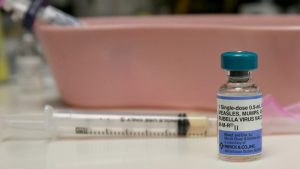Understanding the Impact of Heart Attacks and the Importance of Prevention
Heart attacks are a widespread and often devastating health issue in the United States, affecting millions of people each year. Approximately 805,000 individuals experience a heart attack annually, and according to the American Heart Association, 1 in 5 survivors will have another heart attack within five years. The emotional and physical toll of a heart attack extends beyond the individual, impacting families and loved ones who often find themselves navigating the challenges of recovery and prevention alongside their affected family members. While the risk of another heart attack is a daunting reality, there are practical steps and habits that can significantly reduce this risk and promote long-term heart health.
The Role of Physical Activity in Heart Health
Regular physical activity is one of the most effective ways to strengthen the heart and reduce the likelihood of another heart attack. Dr. George Sokos, a leading cardiologist, emphasizes that exercise should be tailored to each individual’s capabilities and health status. For some, this might involve a daily walk, while others may benefit from more intense endurance-building exercises. However, it’s crucial to determine a safe and appropriate exercise plan through cardiac rehabilitation, a program designed to help heart attack survivors gradually rebuild their physical strength and stamina. Cardiac rehab not only helps patients understand their limits but also provides a supportive environment to maintain consistency in their fitness routine. Sokos stresses that staying active is essential for maintaining a healthy heart, but it’s equally important to avoid overexertion, which can strain the cardiovascular system.
Adopting a Heart-Healthy Diet
Diet plays a critical role in heart health, and a heart-healthy diet is particularly important for those who have experienced a heart attack. The American Heart Association recommends focusing on nutrient-rich foods such as fruits, vegetables, whole grains, legumes, seafood, nuts, and lean meats. These foods not only improve overall cardiovascular health but also help manage cholesterol levels, blood pressure, and body weight—all of which are key risk factors for heart attacks. Dr. Matthew Saybolt, a specialist in structural heart disease, highlights that a balanced diet can significantly reduce the likelihood of future cardiac events. While perfection is not always achievable, minimizing consumption of fatty or ultra-processed foods is a practical and impactful step toward better heart health.
The Importance of Medication Adherence
Certain health conditions, such as high cholesterol, high blood pressure, diabetes, and obesity, increase the risk of heart attacks. Fortunately, there are medications available to manage these conditions and reduce the likelihood of another cardiac event. Saybolt underscores the importance of adhering to prescribed medications, which can strengthen the heart, lower cholesterol, and prevent complications such as heart failure. Additionally, newer medications designed to aid in weight loss have shown promise in protecting heart health, offering hope for individuals struggling with obesity. By taking medications as directed, heart attack survivors can significantly lower their risk of future health issues and improve their overall well-being.
The Dangers of Smoking and the Benefits of Quitting
Smoking is a major contributor to inflammation in the body, which can damage arteries and lead to blood clots—both of which increase the risk of heart attacks. Saybolt explains that smoking exacerbates cardiovascular risk factors, making it essential for heart attack survivors to quit. While quitting smoking is challenging due to its addictive nature, working closely with healthcare providers can provide the necessary support and resources to overcome nicotine dependence. Sokos emphasizes that quitting smoking is a critical step in protecting heart health, especially when combined with other healthy lifestyle changes.
Staying Connected to Your Care Team
Once a heart attack occurs, it marks the beginning of a lifelong commitment to heart health. Regular follow-ups with healthcare providers are essential to monitor progress, adjust treatments, and address any new concerns. Sokos notes that while many patients are diligent about their care immediately after a heart attack, some may lose momentum over time due to fear, anxiety, or other challenges. Staying engaged with your care team and adhering to recommended lifestyle changes is crucial for maintaining a strong and healthy heart. It’s important to view this journey as a collaborative effort between the patient and their healthcare providers, with open communication and education playing a central role.
Embracing a Holistic Approach to Heart Health
Preventing another heart attack requires more than just physical changes—it also involves mental and emotional well-being. Saybolt reminds us that aging naturally brings certain health challenges, and it’s important not to be overly hard on oneself when dealing with these issues. Instead, focusing on actionable solutions and maintaining a positive outlook can make a significant difference. By combining physical activity, a healthy diet, medication adherence, smoking cessation, and regular medical care, heart attack survivors can take charge of their health and reduce their risk of future cardiac events. With the right mindset and support, it’s possible to live a fulfilling and heart-healthy life after a heart attack.















